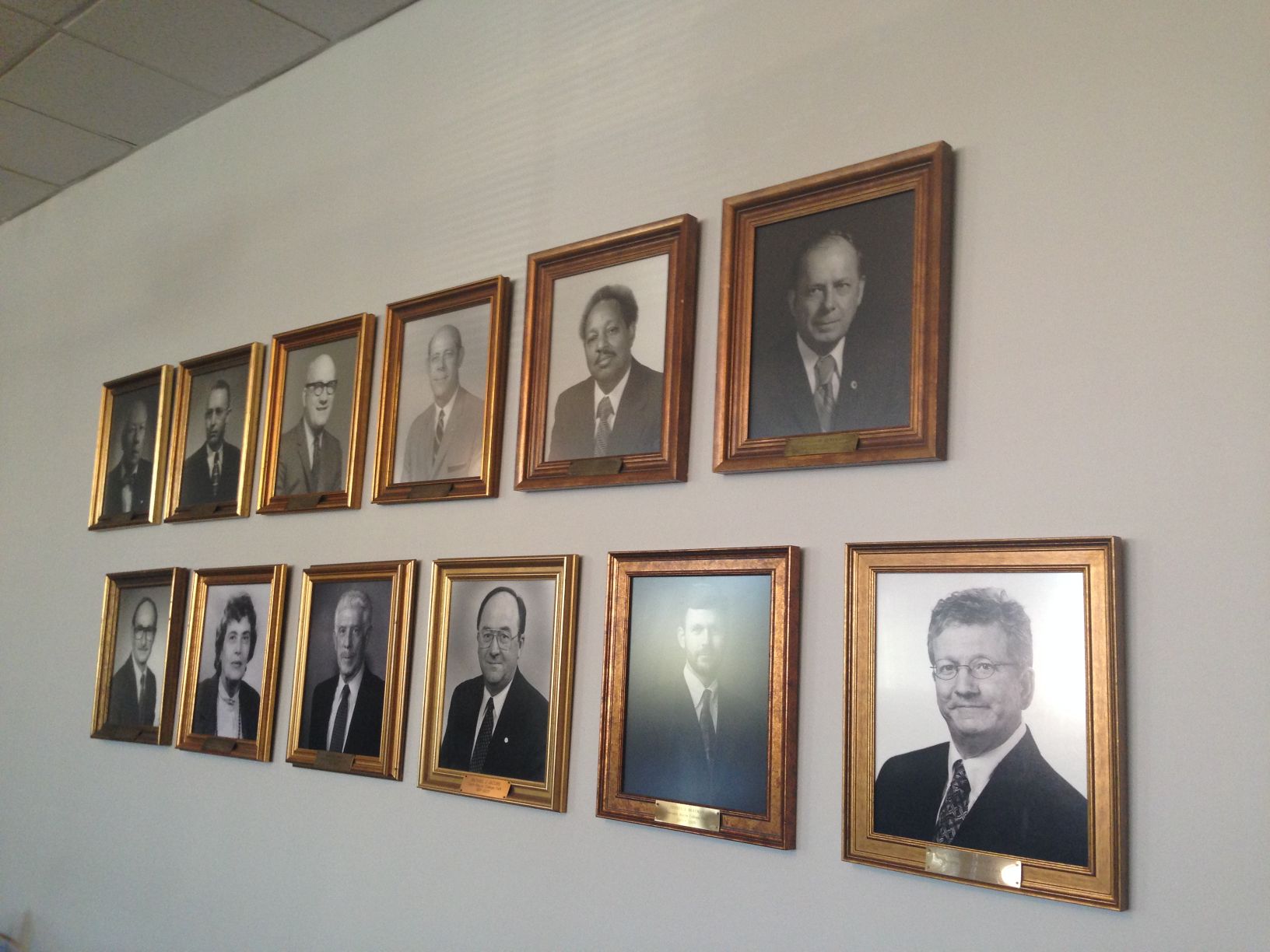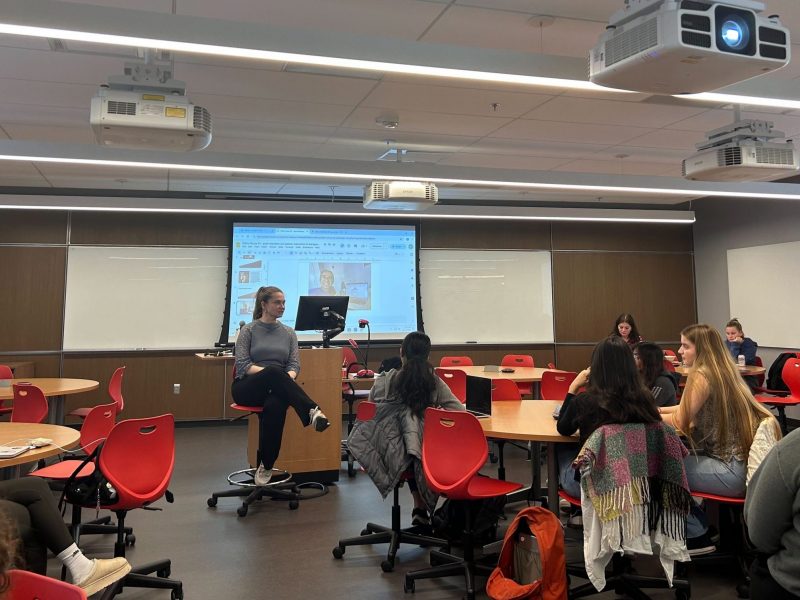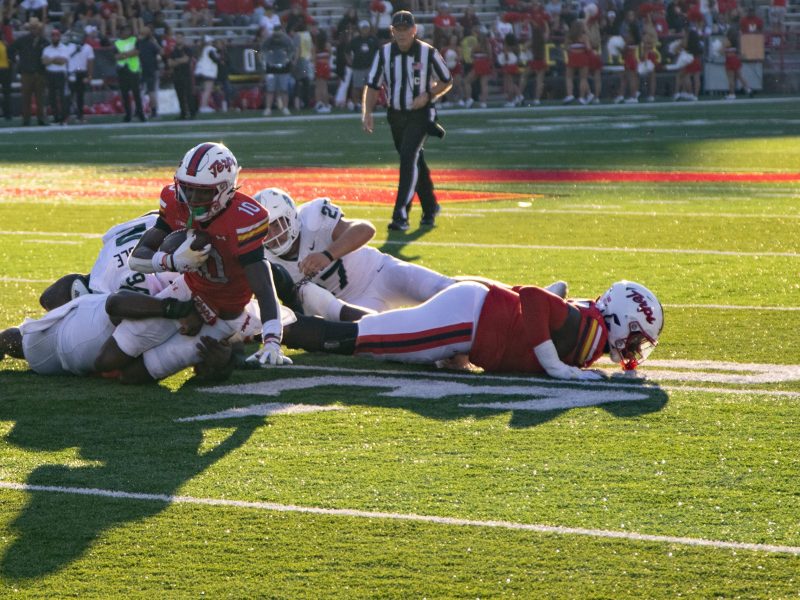
Portraits of College Park’s mayors hang in City Hall.
No matter who wins the mayoral race on Nov. 3, it will be a historic election for College Park.
District 4 Councilwoman Denise Mitchell would be the first black woman to serve as College Park’s mayor. District 1 Councilman Patrick Wojahn would become the first openly gay man to hold the seat.
“Both candidates represent change, change that represents the diversity of College Park,” Mayor Andy Fellows said.
The city has elected one female mayor, Anna Latta Owens, and one black mayor, Dervey Lomax, since it was incorporated as a town in 1945. About 14 percent of College Park residents are black, according to the 2010 U.S. Census.
“Being the first black woman to serve as mayor would mean paying homage to my parents, who moved here in 1975 and were the third Afro-American family in College Park Woods,” Mitchell said.
READ MORE: Meet the Candidates: College Park Edition
Robert Thurston, Lakeland Civic Association president, College Park’s historically black community, said a black woman should have held the office sooner, but “now is as good a time as any.”
“It offers a positive view of what the potential is within College Park,” he said. “With her possibly being the first African-American female mayor, it shows there’s an appreciation of diversity and different cultures.”
If she is elected mayor, Mitchell said she hopes it would inspire other women to take on leadership positions in the city.
“I always look for the opportunity to bring diversity to our leadership,” she said. “Hopefully in the future there would be other women to rise to the occasion.”
While Wojahn said he recognizes the historical significance of the position he could hold come November, he said “it’s just a part of who I am.”
“It doesn’t impact how I plan on acting as mayor,” he said. “To me, it’s just a matter of moving College Park forward and doing good things.”
READ MORE: Andy Fellows wants students to vote in competitive city council election
Throughout most of his campaign, Wojahn said his sexual orientation has not come up.
“It’s significant in some ways because of how much of a non-issue it is, really,” he said. “I can go out and talk about my husband and most people don’t bat an eyelash. It’s just a fact of life that Dave is my family, other residents have their families, and we all live together in College Park.”
People who said his sexuality influences their vote are in the minority, Wojahn said.
“One person who is a community leader told me she supports Denise for mayor, and I asked why,” Wojahn said. “She said she has certain religious beliefs and she doesn’t believe in my ‘lifestyle.’ I appreciated her candor and said I would still hope to work with her if I was elected. Some people have a lot to learn in this society, but I’m not going to let that bother me.”
Last November, Wojahn motioned to add a provision to the city’s charter that states, “with respect to employment, housing and public accommodation, we will not discriminate on the basis of race, religion, sex, age, ethnicity, ancestry or national origin, physical or mental disability, color, marital status, sexual orientation, gender identity, genetic information or political affiliation,” according to city documents, which are the same bases as in Maryland law.
“I believe that nondiscrimination is a fundamental principle,” Wojahn said at the Nov. 25 council meeting. “It’s something that should guide and be the basis for everything we do in our city.”
Mitchell, along with District 1 Councilman Fazlul Kabir, voted against the measure, saying she questioned whether “this is a problem we’re currently having in regards to equal rights justification for all.”
READ MORE: College Park will employ electronic voting at next City Council election
“I still haven’t heard that answer,” Mitchell said Nov. 25. “I’m very reluctant to move forward with this because we have a state bill we do have to follow.”
Both Mitchell and Kabir voted in favor of a second amendment to “add certain nondiscrimination provisions concerning city employment.”
In February, both Wojahn and Mitchell voted to authorize City Council support for an amicus brief filed with the Supreme Court that “explains to the Court the harm to families and communities resulting from marriage discrimination,” according to city documents.
Thurston said that not only is the election significant because of the demographics the candidates represent, but also because each seat — both for mayor and City Council — is contested for the first time in more than 20 years.
“It’s a historic election because of diversity, and it’s been a long time since we’ve had such competition for mayor and City Council,” he said. “It shows there’s a committed effort to understanding diversity in the city.”



